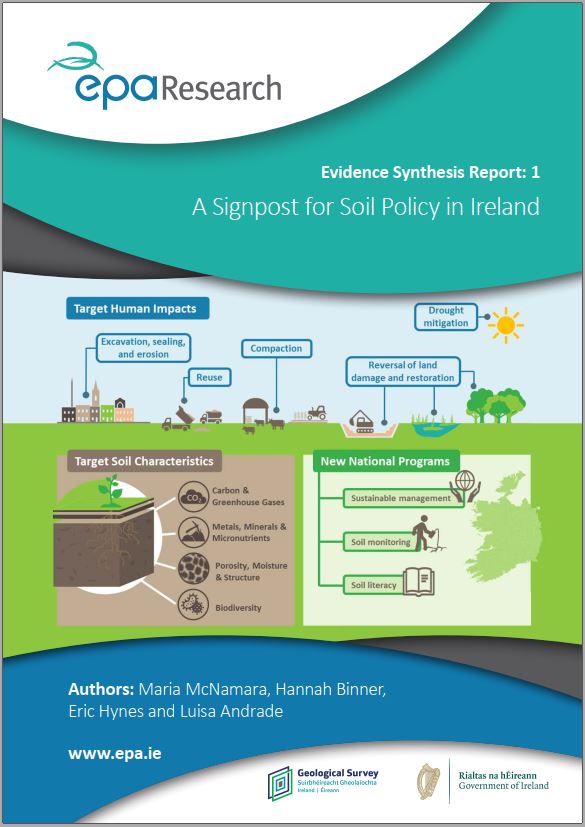
Authors: Maria McNamara, Hannah Binner, Eric Hynes and Luisa Andrade, June 2022
Year: 2022
This study aimed to generate an accessible evidence base to support the development of new policy on soil and to enable Ireland to meet its commitments to both national and EU soil strategies.
Authors: Maria McNamara, Hannah Binner, Eric Hynes and Luisa Andrade, June 2022
Year: 2022
This study aimed to generate an accessible evidence base to support the development of new policy on soil and to enable Ireland to meet its commitments to both national and EU soil strategies.
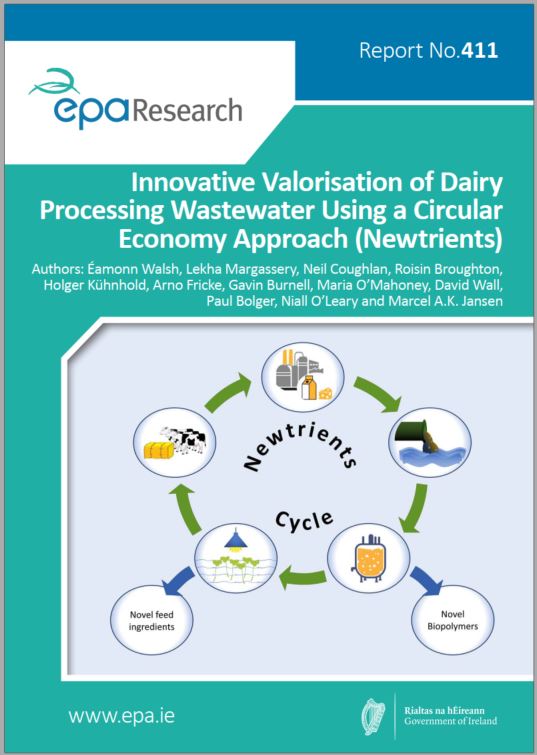
Authors: Éamonn Walsh, Lekha Margassery, Neil Coughlan, Roisin Broughton, Holger Kühnhold, Arno Fricke, Gavin Burnell, Maria O’Mahoney, David Wall, Paul Bolger, Niall O’Leary and Marcel A.K. Jansen, June 2022
Year: 2022
There are pressing economic and environmental concerns regarding the imbalance between resource consumption and regeneration. This research successfully demonstrated a paradigm shift in how wastewater is treated by developing a pioneering cascading system for valorisation of dairy wastewater, based on circular economy principles. It successfully developed an integrated system coupling microbial-based technologies of anaerobic digestion and aerobic dynamic feeding with duckweed cultivation.
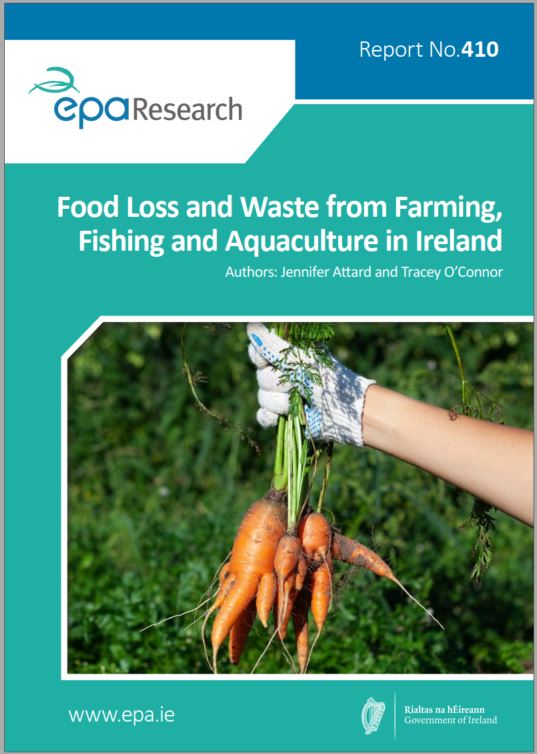
Authors: Jennifer Attard and Tracey O’Connor, June 2022
Year: 2022
Food waste in Ireland has been estimated at 1.1 million tonnes per year, but this excluded farming, fishing and aquaculture (i.e. primary production), as there were no data on these sectors. This research has quantified and understood food waste in primary production and is a starting point in identifying areas that need addressing. The project has compiled various options for solutions available to tackle the specific food waste issues occurring in Ireland.
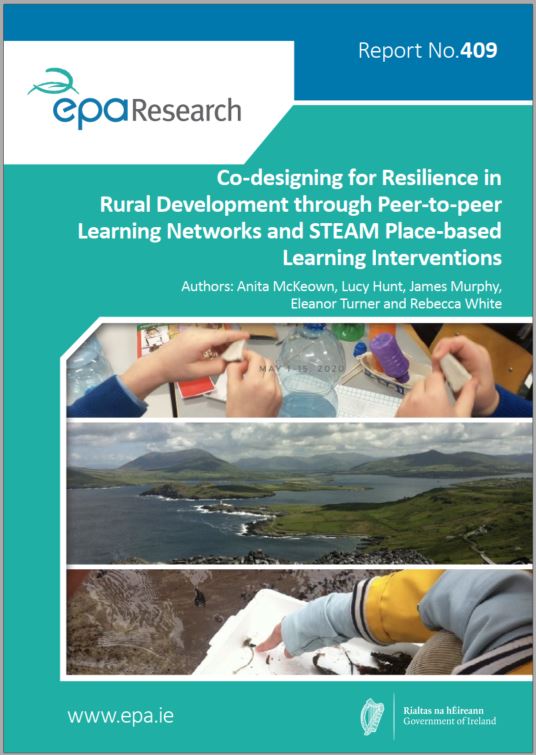
Authors: Anita McKeown, Lucy Hunt, James Murphy, Eleanor Turner and Rebecca White, May 2022
Year: 2022
The United Nations 17 Sustainable Development Goals (SDGs) and the 2030 Agenda for Sustainable Development require governments to take ownership and establish frameworks for the achievement of the 17 global goals. Ireland has mapped existing policies and programmes against each of the 169 SDG sub targets, setting out a roadmap for achieving the goals. CoDesRes developed and explored a series of proof-of-concept methods and from this created two toolkits. As interventions, the toolkits (community peer-to-peer learning and place-based STEAM education) localise the implementation of the SDGs and offer insights into adaptive opportunities to engage the public.
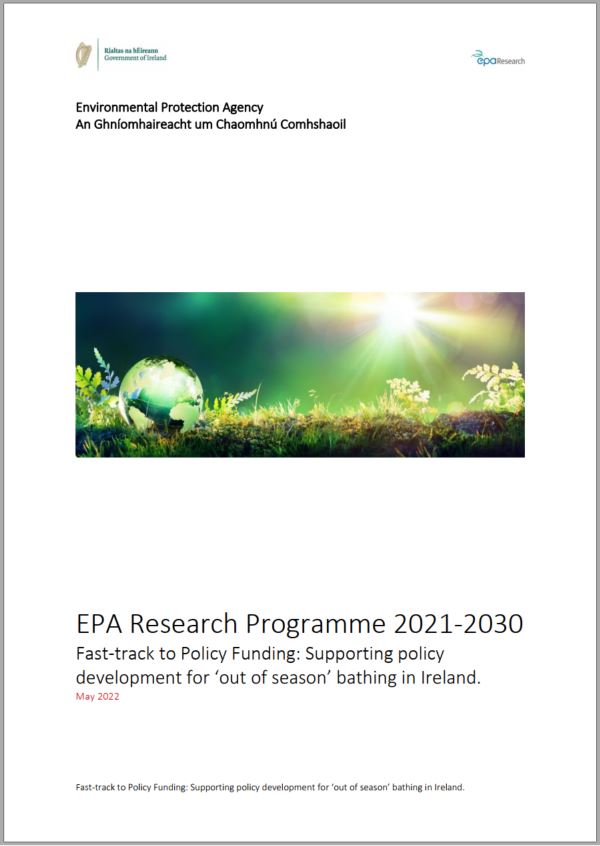
Call 2022-02, May 2022
Year: 2022
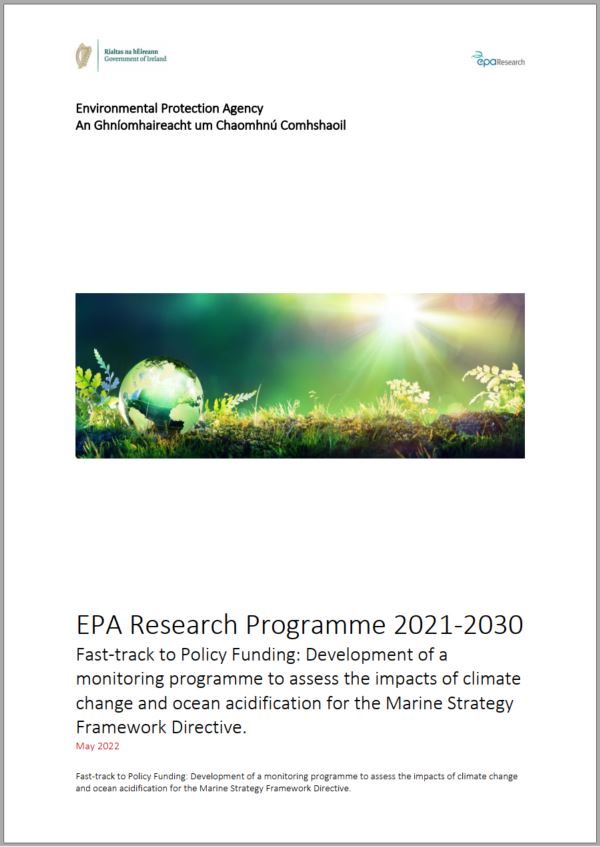
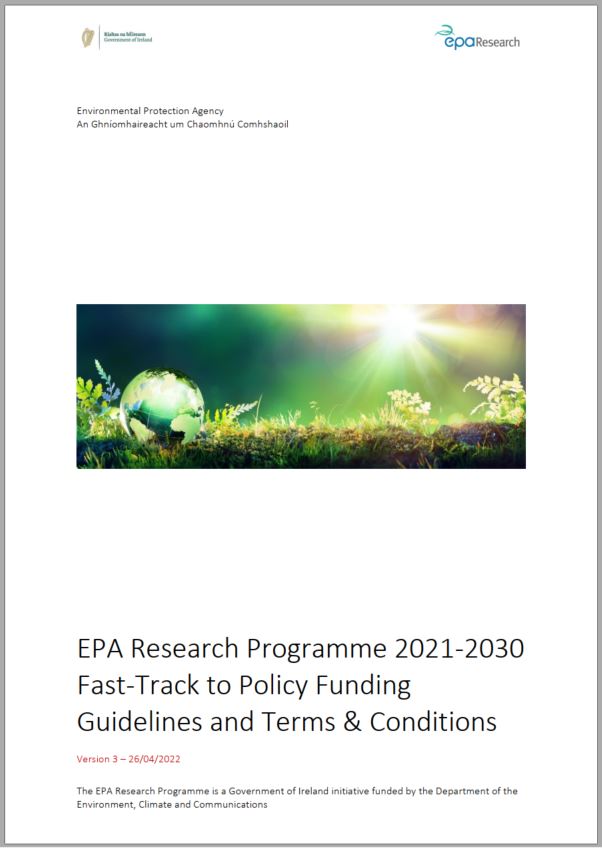
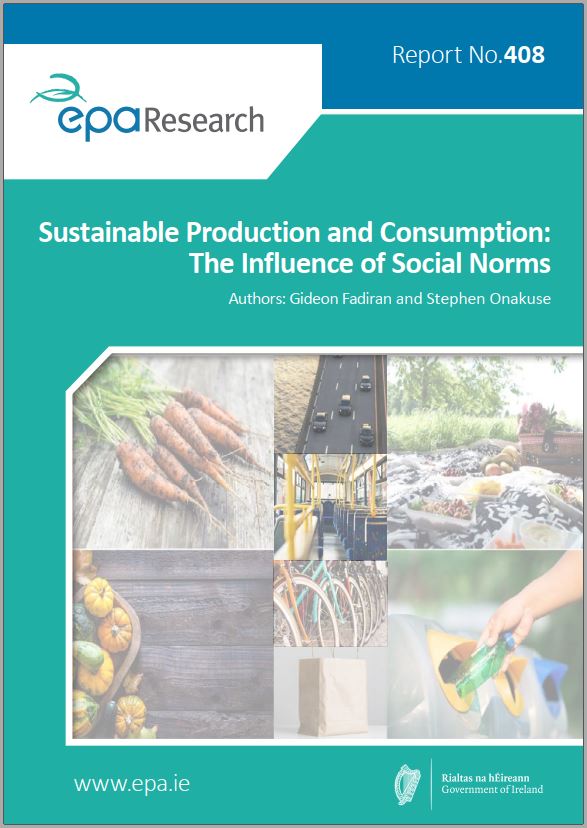
Authors: Gideon Fadiran and Stephen Onakuse, May 2022
Year: 2022
Consumer behaviour represents acts or decisions that influence the direction of production and consumption activities, which are, in turn, driven by household and, ultimately, economic activities. This research investigated the linkages between habits and norms that drive behavioural attitudes and preferences, and how consumers’ socio-economic background, community, beliefs, etc. are identified as the driving factors of consumer behaviour and waste patterns.
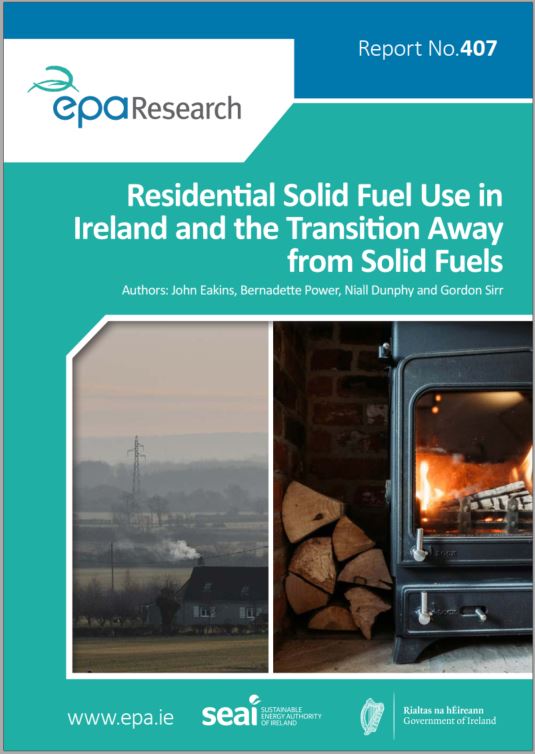
Authors: John Eakins, Bernadette Power, Niall Dunphy and Gordon Sirr, April 2022
Year: 2022
The EPA has highlighted air quality issues in urban centres in Ireland in recent years. Emissions of fine particulate matter (PM2.5), attributable to the burning of solid fuels, such as coal, peat and wood, are a particular cause of concern. This research project aims to provide a deeper understanding of the sector using existing and new sources of data on solid fuel use. The development of a new data set based on a survey of household heating and fuel use will be the primary contribution.
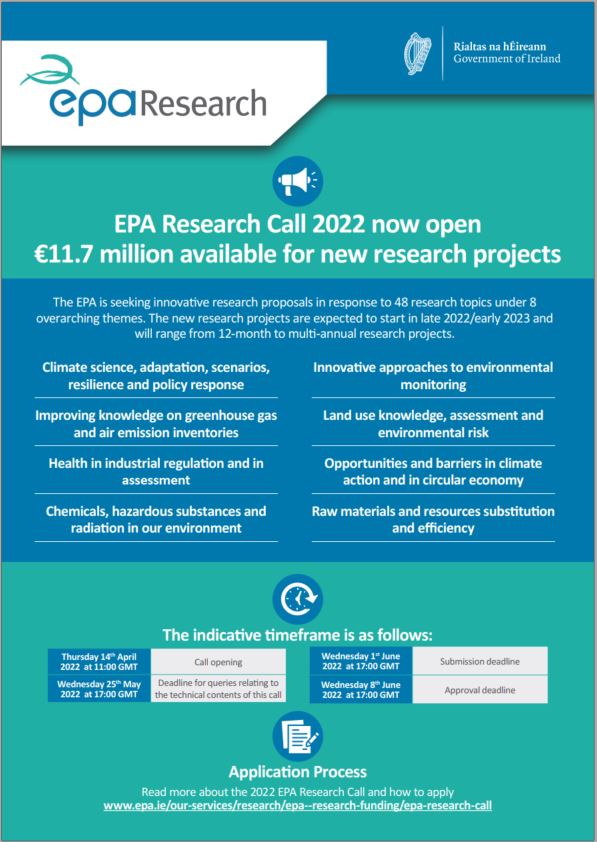
Year: 2022
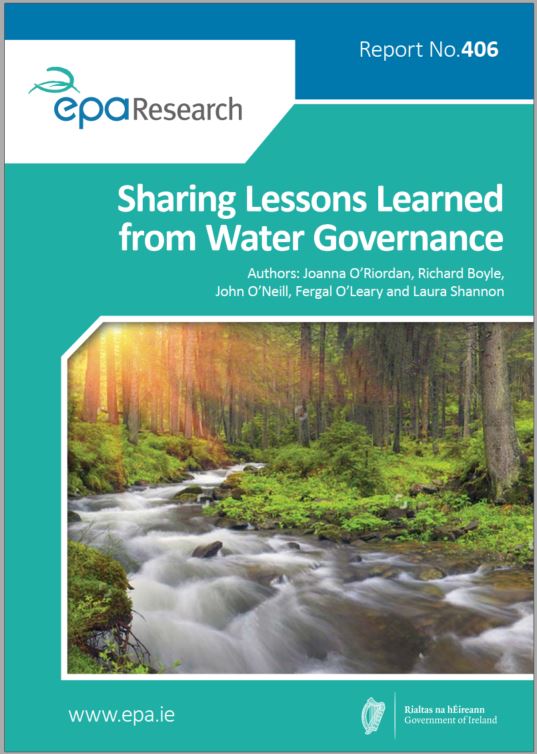
Authors: Joanna O’Riordan, Richard Boyle, John O’Neill, Fergal O’Leary and Laura Shannon, March 2022
Year: 2022
Clean, healthy water is essential for our economy, our aquatic wildlife and our health and wellbeing. However, as noted in the draft third-cycle River Basin Management Plan (Department of Housing, Local Government and Heritage, 2021), there are mounting environmental pressures on Ireland’s waters with the situation described as ‘’urgent’’. The objective of this research was to review changes in structures and processes made under the second-cycle River Basin Management Plan, 2018–2021, to inform thinking regarding the third-cycle River Basin Management Plan, 2022–2027.
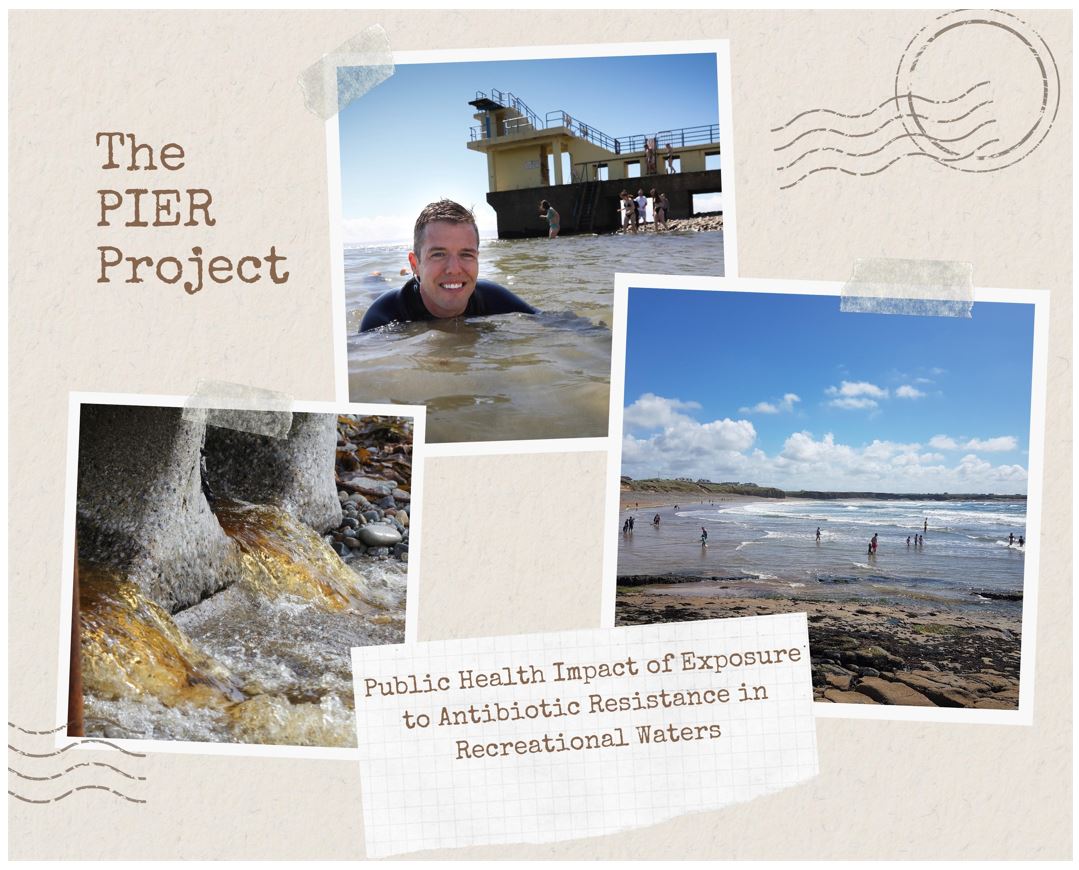
Winner of the EPA Researchers Awards 2021 Best Photograph, March 2022
Year: 2022
Overall Collage- Alexandra Chueiri, Pollution Photo- Blathnaid Mahon, Swimmer Photo- Aengus McMahon d. Beach Photo- Liam Burke
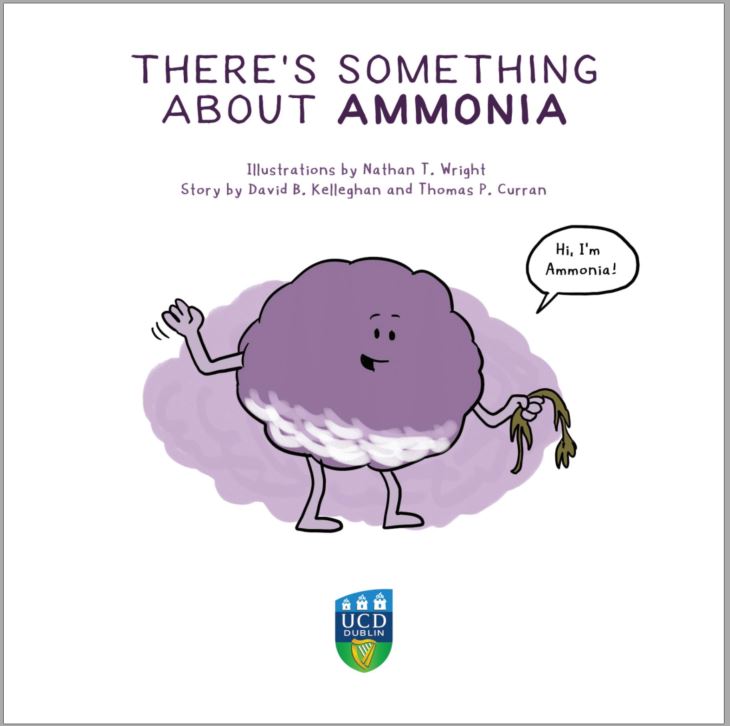
Winner of the EPA Researchers Awards 2021 Best Infographic, March 2022
Year: 2022
Illustrations by Nathan T. Wright. Story by David B. Kelleghan and Thomas P. Curran. This is an output produced by UCD, arising from the EPA-funded research project "Assessment of the Impact of Ammonia Emissions from Intensive Agriculture Installations on Special Areas of Conservation and Special Protection Areas" under the EPA Research Programme 2014-2020. Translated into 16 languages by COST-Action program and numerous volunteers.
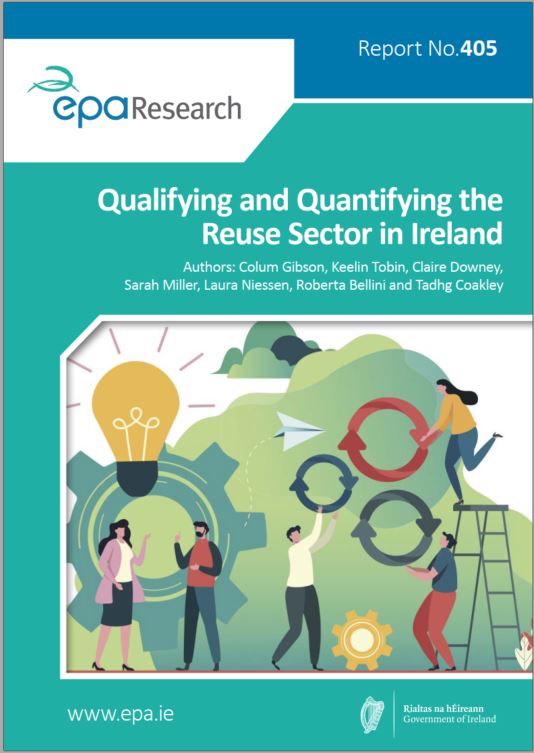
Authors: Colum Gibson, Keelin Tobin, Claire Downey, Sarah Miller, Laura Niessen, Roberta Bellini and Tadhg Coakley, March 2022
Year: 2022
Recent EU legislation aims to strengthen reuse in all Member States and asks Member States to measure reuse, with the option of setting national targets in the future. By gathering information on the scale and size of the reuse sector in Ireland, we can benchmark and compare our reuse sector against others. This study assessed the capability of the Irish reuse sector to supply the data necessary for quantifying the extent of reuse in Ireland and informing Irish policymakers on the steps required to support the sector to report in the future.
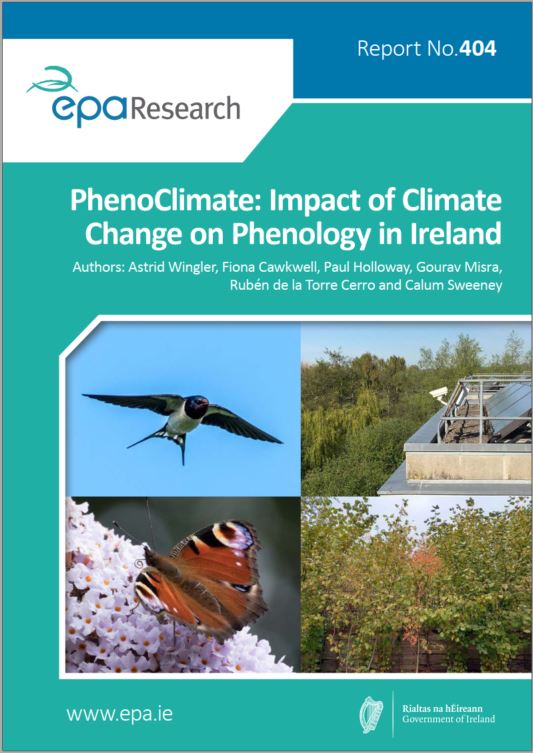
Authors: Astrid Wingler, Fiona Cawkwell, Paul Holloway, Gourav Misra, Rubén de la Torre Cerro and Calum Sweeney, March 2022
Year: 2022
The PhenoClimate project determined the impact of climate change on seasonal life cycle (phenological) events and the consequences for species interactions. For Irish woodlands, an advance of the growing season in spring was identified using satellite remote sensing. Arrival of migratory birds was found to advance too, however, instances in which migratory birds showed asynchrony with insect first flight dates were identified, suggesting that climate change can result in phenological mismatch.